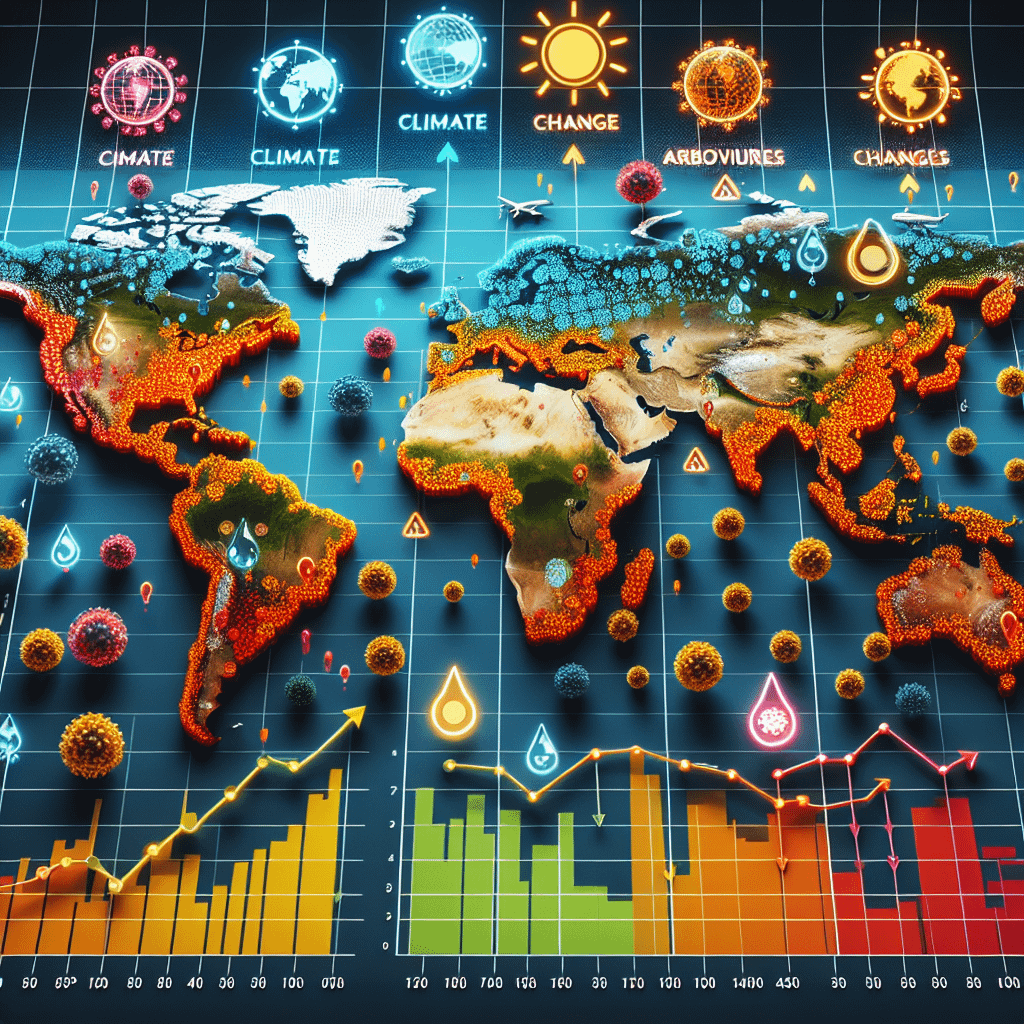Image credits: CDCClimate change is increasingly recognized as a factor in the spread of arboviruses, diseases transmitted by mosquitoes and ticks. Viruses such as dengue, Zika, chikungunya, and West Nile are directly influenced by environmental factors like temperature, humidity, and precipitation patterns. As global temperatures rise, the range of mosquito vectors like Aedes aegypti and Aedes albopictus, which carry these viruses, has expanded into previously cooler regions, heightening the risk of outbreaks in areas where these diseases were once rare.1Rising temperatures shorten the incubation period of viruses within mosquitoes, accelerating viral replication and increasing transmission rates. Studies have shown that higher temperatures significantly reduce the extrinsic incubation period (EIP) for diseases like dengue, thus enhancing transmission.1Another recent study estimated that climate change accounts for 19% of the global rise in dengue cases, with temperatures increasing the speed of mosquito virus transmission. This research, covering 21 dengue-endemic countries, predicts a 40%-60% rise in global cases by 2050, with some regions such as parts of Peru, Mexico, and Brazil, facing increases of up to 150%-200%.2As of 2024, there have been a total of 8,064 reported dengue cases in the United States. This data includes cases from both US states and territories, with reports from 52 jurisdictions. The numbers are provisional and may be subject to change due to delays in reporting. Most cases in the US are linked to travel-related infections, although some local transmission has also been reported. Most are in warmer southern states such as Florida, Texas, Arizona, and Southern California.3Milad Zandi, PhDImage credits: LinkedInIn an exclusive email interview with expert virologist Milad Zandi, PhD emphasized, “The warmer the climate, the faster the virus replicates within the mosquito, increasing the chances of transmission.” Climate-induced changes in rainfall patterns also create ideal breeding grounds for mosquitoes, while drought conditions can exacerbate breeding in stored water containers. These environmental shifts have already been linked to major dengue outbreaks in Southeast Asia and South America, often exacerbated by the El Niño phenomenon.Urbanization, often driven by climate change, further contributes to the spread of arboviruses. Informal settlements in low- and middle-income countries, where waste management and water systems are poor, provide abundant mosquito breeding sites. Zandi pointed out, “Urbanization exacerbates the problem. In rapidly growing cities, especially in the Global South, inadequate waste management and water storage practices create ideal conditions for mosquito breeding.” The high population density in urban areas also facilitates virus transmission. Migration due to climate-related events such as floods and droughts has led to increased movement of populations into areas with new vectors, further

